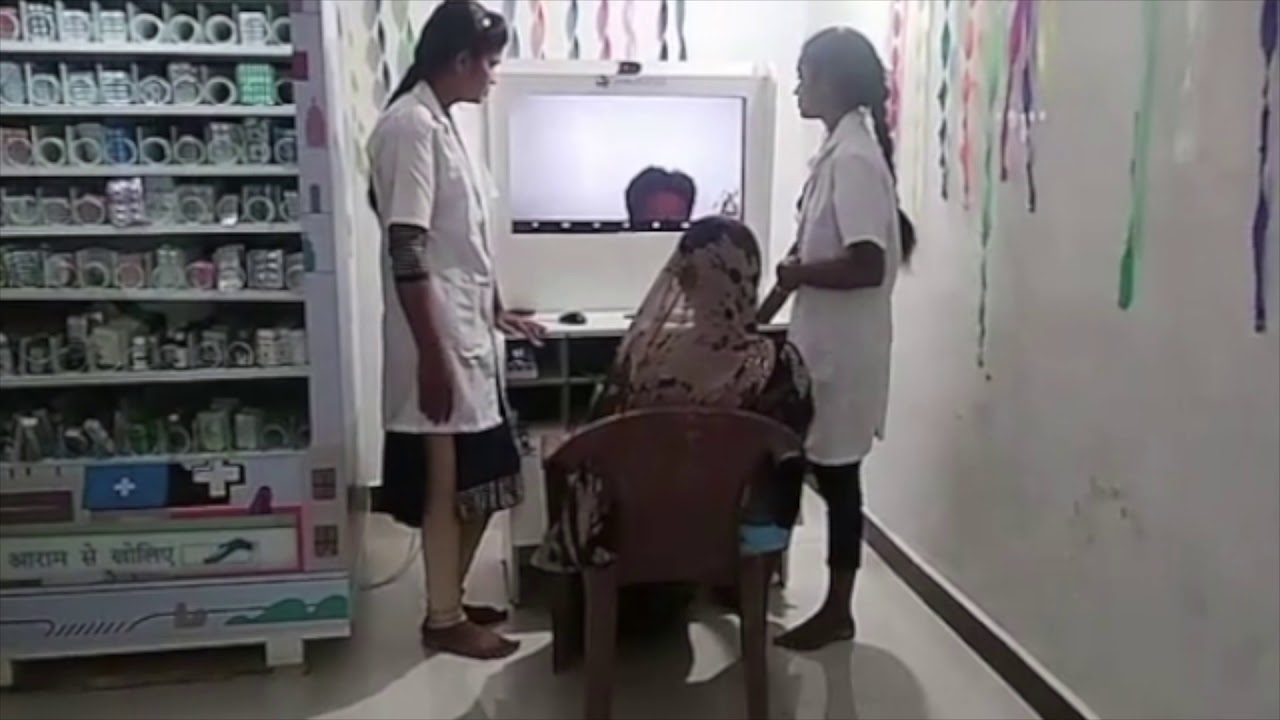To combat this dire scenario, a solution, in the form of telemedicine, developed by MedOnGo Inc, was unveiled. It bridges the gap between rural and urban healthcare.
Telemedicine: For Sulochana Devi, taking 1,000 INR from her household budget to travel to the nearest city for medical treatment was difficult. It meant that she will probably not have money for enough food the rest of the month. Something as basic as primary health care that we take for granted is something Sulochana Devi fervently prays for.
The lack of a primary health care centre has resulted in many sick people risking death while waiting it out, or spend all their savings to travel to the city for a diagnosis of a simple affliction and its treatment.
Sukarma Foundation is changing that reality: Using advances in technology and with the help of the passionate and humane doctors in Jaipur, a city in India, Sukarma Foundation has started a telemedicine centre in Mehergaon, a remote village in Narsinghpur district of Madhya Pradesh. With over 250 patients in the past six months, the telemedicine centre has proved to be a boon for families that worried about the costs of basic health and fought the risk of an empty stomach.
Using Technology, Spirit, and Good Intentions for Basic Healthcare
The marvels of technology in the form of medical software and mobile internet have allowed doctors from an urban city hundreds of miles away to connect with illness-ridden villagers of Narsinghpur, Raisen and Hoshangabad districts. The technology and protocols developed by MedOnGo Inc. India, comply with all national laws and guidelines to ensure best practices.
Let us illustrate how the telemedicine centre helps a villager get the medical help they need.
When Roshni, a 10-year old girl starts coughing incessantly and spikes a fever, she is taken to the telemedicine centre by her parents. A woman trained in General Nursing Midwifery (GNM) checks Roshni’s vitals such as pulse, temperature, and blood sugar. Essential diagnostic kits for common diseases and deficiencies are also used. All this information is transmitted in real time to the doctors.
Next, a highly experienced doctor consulting from an urban area reads the information on the dashboard and through live video chat, asks Roshni follow-up questions. Once the doctor is certain of the condition, he or she uses the medical platform to send a prescription.
The telemedicine centre prints the prescription. Roshni’s parents use the unique bar code on the prescription to get the appropriate medication from the vending machine installed within the telemedicine centre.
Thus, Roshni is able to get the medical help she needs at one-tenth the cost. Her parents do not have to worry about who will take care of their other child, the fields, or the house if they have to visit the city for treatment.
This telemedicine solution was partly funded by generous gifts from Kirit Shah and Bipin Kapadia.


